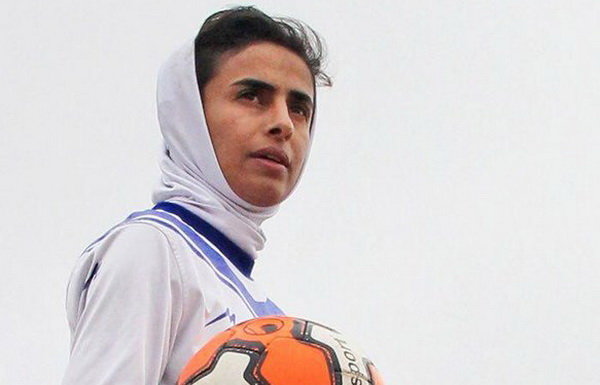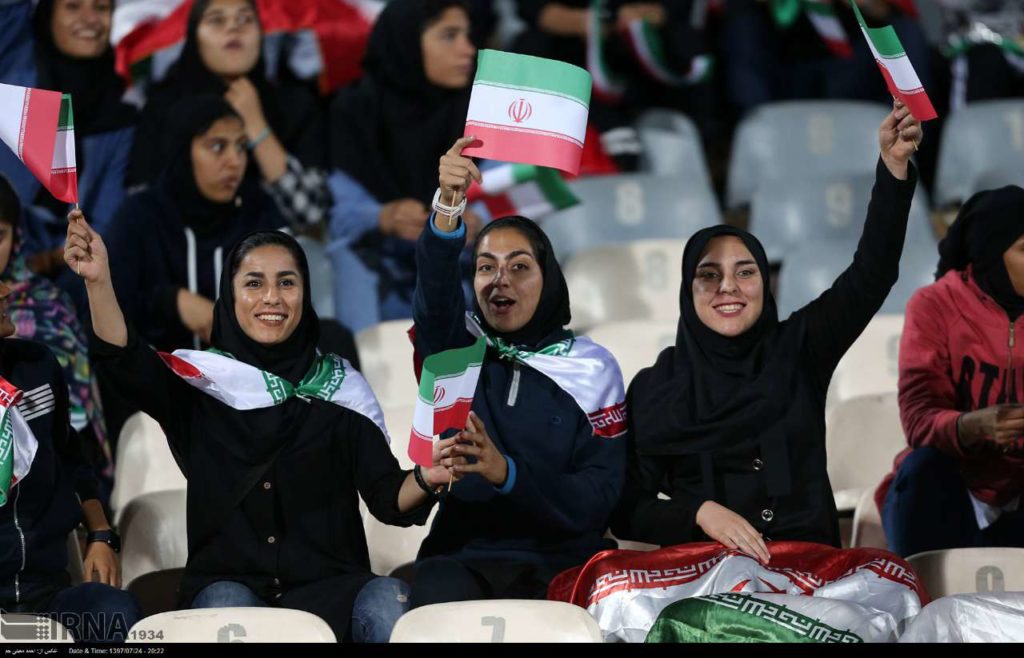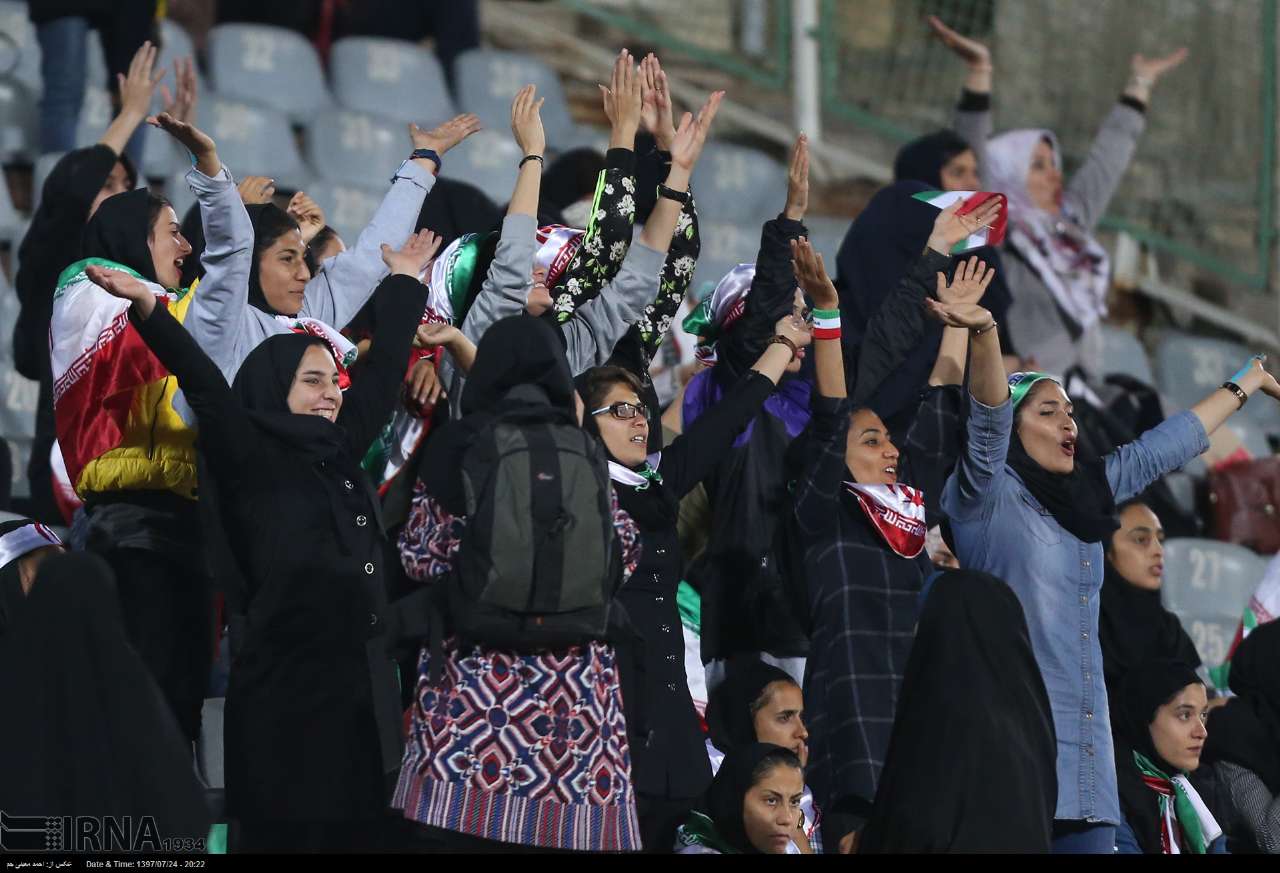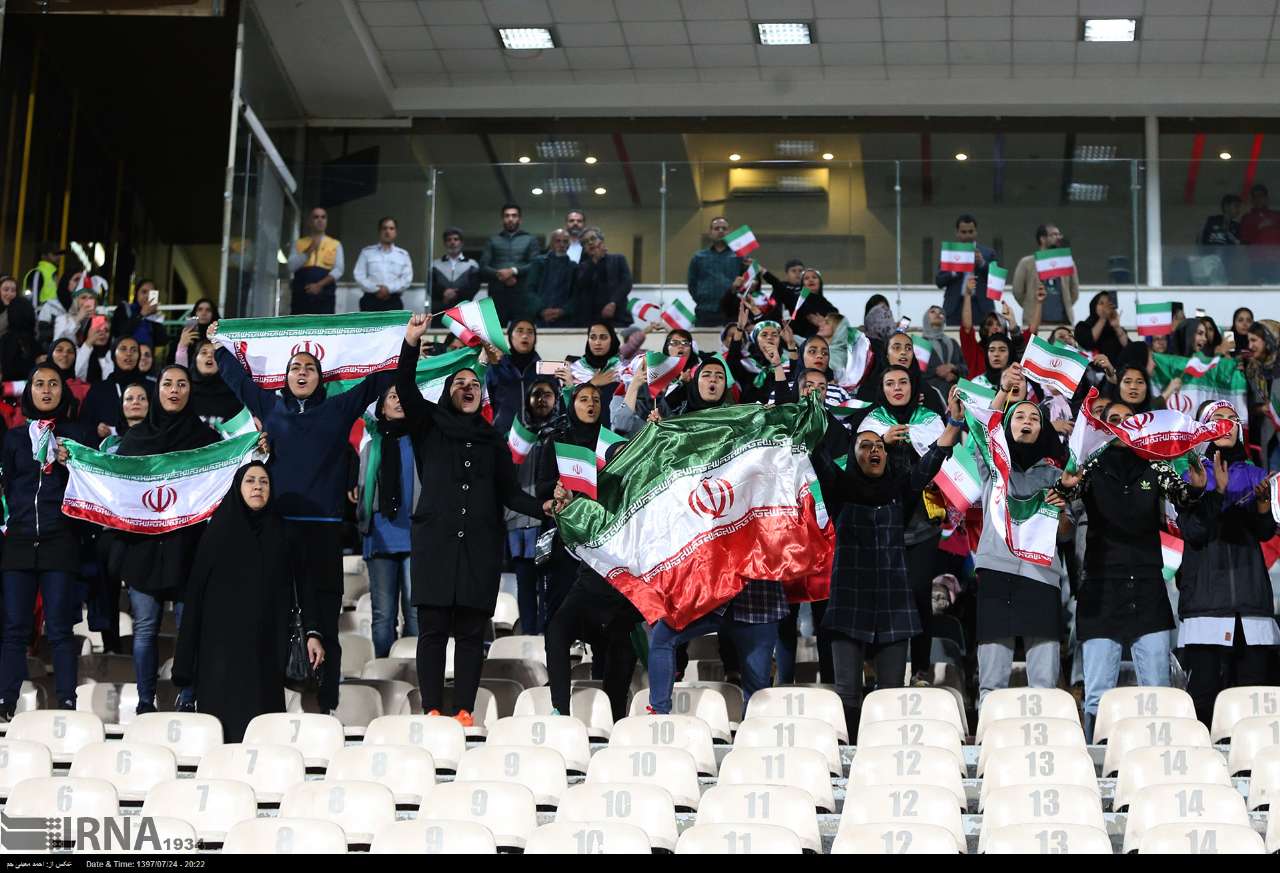Last night, the Team Melli met Bolivia in a friendly international match at Azadi Stadium, the result of which was a narrow win by two goal to one for Iran.
Apart from the satisfactory result, a more significant and important thing in Azadi Stadium was the surprise presence of women after 40 years. Since the Islamic revolution, females were banned by the fundamentalist government from attending men football matches at all the stadiums in Iran.
Although the presence of women watching the match was selective and limited, and ordinary people could not watch the match, nevertheless allowing such limited numbers to enter the stadium for the first time after 40 years, even in a controlled manner, could be a good omen and might even be the beginning of equal opportunity for men and women to be able to attend football match at all Iranian stadiums.
This particular ban by the religious authorities is second most despised and unpopular of all the freedom restrictions that the Islamists have forced upon Iranians after that hated forced Hijab wearing for females.
Under the Constitution of the Islamic Republic of Iran in accordance with the concept of the Guardianship of the Islamic Jurist, the powers of government are vested in the legislature, the judiciary, and the executive powers, functioning under the supervision of the Absolute Guardianship and the Leadership of the Ummah , which is in reference to the Supreme Leader. Ayatollah Ali Khamnaei.
Iranians and Persians in general, have always taken pride in the role of women not just at home but in a greater scope in their society. Iran was a leading country in literacy of females and their involvement in civil activities and sport
During the Shah’s regime, women ministers served in the government. Dr. Farrokhroo Parsa was Minster of Education from 27th August 1968 to 2nd January 1971. Parse was a physician, educator and parliamentarian. Her mother, Fakhr-e Āfāgh, was the editor of the women’s magazine Jahān-e Zan (“The World of Woman”). After the Islamic revolution and after 8 years out of office, Parsa was callously executed after a summary trial.
Another female Minister was Mahnaz Afkhami, who manged to escape to USA but remained an outspoken campaigner for women’s rights in Iran.

Women Rights did not appeal to the Islamic Republic’s more conservative elements especially at the beginning of the revolution when many radical and extremists where in power.
“The women who participated in the revolution, and they did in large numbers, many of them were actually pushing for more rights, they were pushing for more freedoms, pushing for more equality,” Mahnaz Afkhami, currently living in US explained to BBC in an interview.
“That was why the disappointment was so great when the revolution ended up taking away the rights that they had already gained.”
After the Iranian revolution in 1979, many of the secular rights that women had being afforded under the Shah were abolished or rolled back. An order was passed that laws that were in contravention of religious (or sharia) rules had to be revoked.
Islamic polygamy was instituted and, most visibly, the hijab head covering became mandatory in all public spaces.
For 40 years Iranian women resisted and protested the government’s harsh treatment of women and for that, they were victimized. Thousands were dragged to police station and jailed for simply what they label as bad hijab.
Change was coming however.
The authorities eased the rules that mandated the strict wearing of hijab which even Presidents such as Rouhani criticized
Allowing women in Stadium, which must have been approved by the supreme leader, is seen as one further step towards easing of the nation suffering which is experiencing hardships and economical decline partially due to American sanctions.
Restrictions on activities such music concerts and mixing of men and women in public have started being relaxed although not totally abandoned by the government.
No doubt that the Saudi Arabia allowing women to drive and also allowing them into stadiums to watch football matches in what was forever an autocratic ultra conservative regime, has enticed the Iranians to respond and not be left behind.

Sarah Ghumi, Iran’s women’s National Team player , fan who watched the game closely as a fan, said in an interview with ISNA about her experience: “Last night, there was a lot of excitement among spectators, and we were all happy when we were going to the stadium for the first time. As a fan I always wanted to go to the stadium and watch my favorite teams playing closely. Thanks God that this time the ladies entered the stadium to watch the match of our national team. We were so glad that it was really worth it.”
About the continual entry of women to the stadiums, she added “: I’m optimistic about this. I think there have been talks that families will be allowed entry to watch games from now on. I’m sure this will happen, and I hope the entry will be free for all women.”



